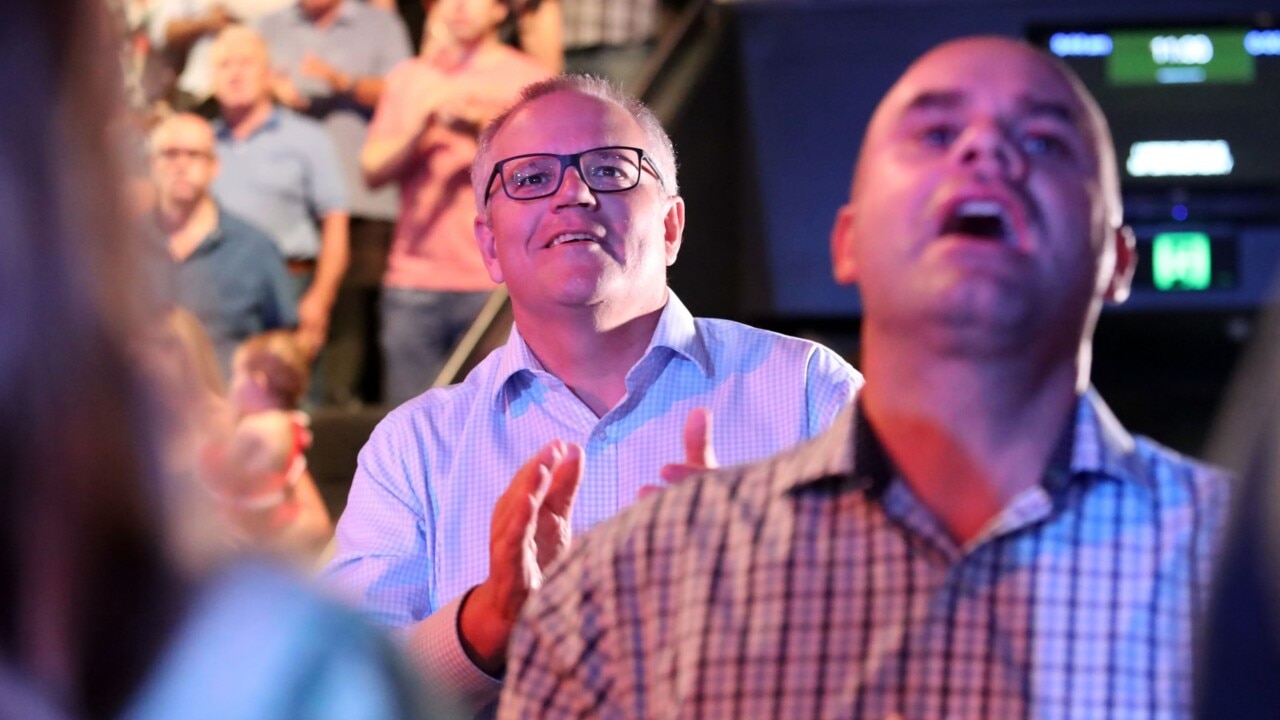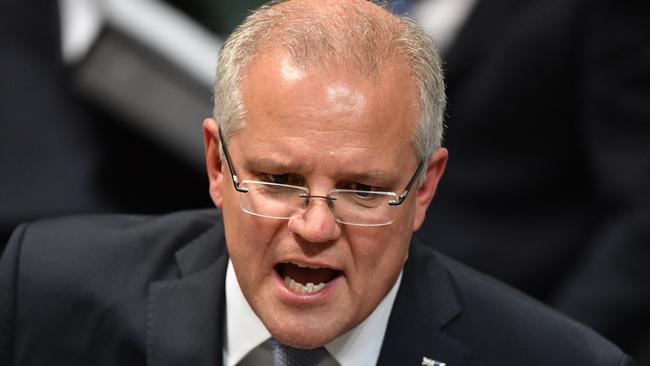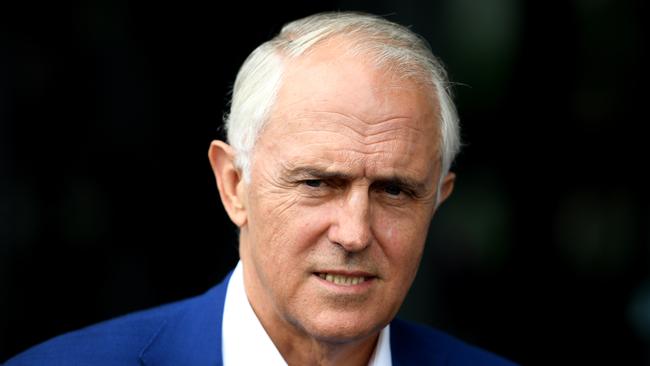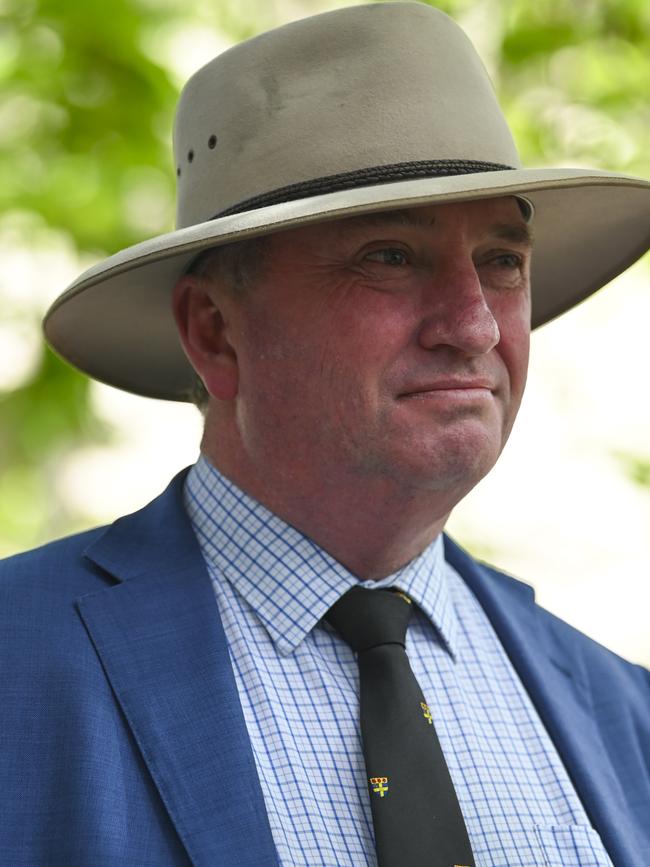Ellen Whinnett: How the Marie Kondo effect worked for Prime Minister Scott Morrison
Scott Morrison has managed to do a Marie Kondo on the ghosts of leaders past and is enjoying a predecessor-free parliament. But how long will it last, writes Ellen Whinnett.

Opinion
Don't miss out on the headlines from Opinion. Followed categories will be added to My News.
Scott Morrison is enjoying something a bit unusual — occupying the leader’s office without the ghosts of leaders past lurking in the shadows.
Liberal leaders have in recent times been fighting not just the other side, but guerrilla wars being run by former leaders and their proxies either defending their legacy, seeking influence, or just destabilising for the hell of it.
Malcolm Turnbull spent every day of his prime ministership feeling Tony Abbott’s beady eyes boring into his back in parliament. Abbott always had the shadow of Turnbull hovering over him after he defeated him as Liberal leader back in 2009.

Morrison by contrast has a predecessor-free parliament, with Abbott defeated at the May election by an independent, and Turnbull resigning after the leadership battle of August 2018.
After winning the supposedly unwinnable election, Morrison now finds himself in the enviable position of operating with clear air.
He has an electoral mandate. It is slim, but it is legitimate. He has probably 2½ years before the next election. He’s got a bunch of happy new backbenchers who thought they were likely to be elected to the opposition benches and unexpectedly find themselves in government. Former leadership rival Peter Dutton has shrugged off the loss and knuckled back down into his portfolio work.
His Labor rivals are still traumatised from their election defeat and yet to even begin settling policy disputes, with enough divisions emerging on issues such as climate change to cause new leader Anthony Albanese a degree of heartburn as he awaits the results of the party’s review into their election loss.
How good is it to be prime minister, under these circumstances!
Those who haven’t managed to do a Marie Kondo on their past leadership woes don’t enjoy such inner peace. And for once, it’s not Labor struggling to manage former leaders. Indeed Bill Shorten has been the model of good behaviour, publicly accepting blame for the defeat, and not generating any leadership headlines at all.

It’s the junior Coalition partners the Nationals who stepped up on leadership angst this week.
Some of the Queensland Nats are acting out against their New South Wales and Victorian-based leadership team, particularly deputy leader, Senator Bridget McKenzie.
The Victorian-based McKenzie infuriated her colleagues by refusing to bring forward a code of conduct to help dairy farmers — only to turn around a few days later and tell One Nation leader Pauline Hanson it would be fast-tracked.
For the Queensland Nats, who spend each day in hand-to-hand combat with One Nation, this was infuriating, and played into ongoing frustration with NSW-based leader Michael McCormack, who has taken a while to grow into the leadership role.
The Queenslanders are furious Hanson has been able to claim high moral ground on the drought, and fear the Nationals were not being recognised for their work and advocacy on the issue, which is important in regional Australia.
Wide Bay MP Llew O’Brien even got up in the party room on Monday and announced he had been planning to call a spill against McKenzie, but didn’t. This, predictably, achieved nothing but a flurry of negative headlines for the Nats and some self-satisfaction for One Nation.
Meanwhile, at every Question Time lurks the figure of Barnaby Joyce, the leader forced to resign in February 2018 as deputy prime minister and Nats leader after his affair with a staffer became public.

Joyce radiates unhappiness, and some Queensland MPs, who form the base of the party, aren’t being too subtle in their frustration with the leadership of McCormack. Some of these MPs still support Joyce, despite the scandal he brought to the government.
One wonders what the last old-school leader of the Nationals, the implacable Warren Truss, makes of it all.
Regardless, in terms of stirring the leadership pot, the Nats are doing it at a time when it least matters in the electoral cycle.
So why then is Morrison so grumpy? The PM seems to have been radiating an elevated level of frustration in Parliament House this week. His colleagues acknowledge it and are a bit puzzled, but think the Nationals are irritating him with their lack of discipline.
Other potential concerns could be the stalling economy. While Treasurer Josh Frydenberg is giving a good impression of a duck paddling in a stable and secure manner across the lake, no doubt there’s frantic paddling going on beneath the surface as the government works out how to rev up the economy without resorting to fiscal stimulus.
Could the looming spectre of Turnbull’s book — due to lob just before Christmas and supposedly so juicy Turnbull had to self-insure it for defamation — be causing concern? Or the ongoing contortions required to avoid answering questions on whether Morrison tried to invite his mate, the controversial pastor Brian Houston, to the White House for a state dinner, only to be rejected by the Americans?
Or maybe he’s just tired — the dual sitting weeks always take their toll, and this sitting fortnight had the Liberal executive council in the middle of it. Morrison also had a lightning trip to Indonesia squeezed in.
Morrison used a joint party room meeting this week to remind colleagues that while things were good at the moment, they wouldn’t always be so, and that it would therefore be wise to remain focused on detail and have a disciplined end to the year. It was good advice.
Ellen Whinnett is Herald Sun national politics editor
